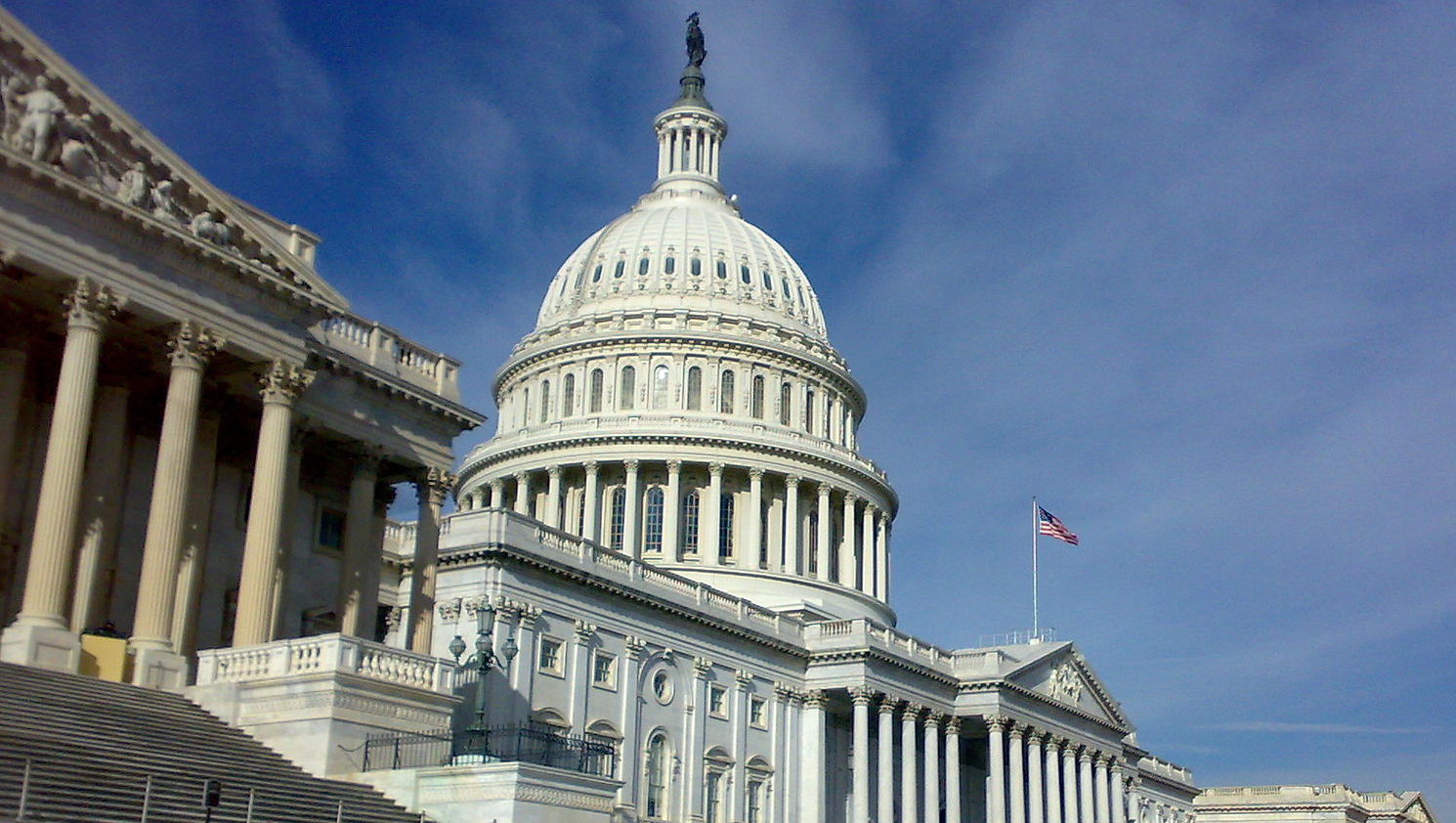Could Congress Simply Codify the DOJ Special Counsel Regulations?
Some members of Congress are looking for ways to protect the integrity of the Mueller investigation by ensuring that Mueller won’t be removed from office unless a genuinely appropriate basis exists for doing so. Sens. Christopher Coons (D-Del.) and Thom Tillis (R-N.C.) have introduced legislation to provide for judicial review if Mueller is removed, and Sens.

Published by The Lawfare Institute
in Cooperation With

Some members of Congress are looking for ways to protect the integrity of the Mueller investigation by ensuring that Mueller won’t be removed from office unless a genuinely appropriate basis exists for doing so. Sens. Christopher Coons (D-Del.) and Thom Tillis (R-N.C.) have introduced legislation to provide for judicial review if Mueller is removed, and Sens. Lindsey Graham (R-S.C.) and Cory Booker (D-N.J.) have introduced a second bill that would force DOJ officials to seek pre-termination review. To create a clear focal point for discussion, let’s suppose Congress simply did this: codified the Justice Department’s existing regulations on special counsel and made them judicially enforceable. Doing that would mean the executive branch could not unilaterally repeal those regulations.
There are both policy and constitutional issues to consider. On the policy front, Bob Bauer has already launched a pre-emptive attack against virtually any legislative proposal in this arena. Dubbing any such effort a “Return to the Independent Counsel Statute,” Bauer characterizes the current legislative efforts as modeled on “the misbegotten experiment” with that "largely discredited” law. But this waving of the bloody shirt of the Independent Counsel Act is overwrought, for it fails to recognize how different the special counsel regime under which Robert Mueller operates is from the regime that Congress created in the Independent Counsel Act—which existed from roughly 1978 to 1999 and gave us the Iran-contra (Lawrence Walsh) and Whitewater (Ken Starr) investigations. Even if Congress went so far as to codify the current DOJ regulations, it would not be re-creating the Independent Counsel Act.
When Congress allowed the act to expire in 1999, there was bipartisan agreement that its design had been fatally defective. The view was that the act had left independent counsels (ICs) too independent of all constraints and had inadvertently created a bad incentive structure for the ICs that at times encouraged investigations that sprawled well beyond their original justification, went on endlessly, and created too much pressure for the independent counsel to justify their existence by showing that they had discovered some sort of crime that the target of their investigation had committed. Testifying before Congress in 2008, former DOJ official Neal Katyal summarized the kinds of problems that had led Congress to let the act die in 1999:
In the past, independent counsels have been criticized for excessive zeal in performing their duties. Without significant oversight, or meaningful limits on their budget or jurisdiction, independent counsels could simply keep digging until they found dirt. Moreover, the requirement to submit a final, public report created a heavy incentive to justify their often significant expenditures by producing at least some evidence of wrongdoing. Once appointed, they could, and often did, investigate their target until they found some sort of evidence of wrongdoing, whether or not it was related to their initial charge.
But at the same time Congress let the act die, it was also broadly recognized that the problems to which the act was a (flawed) response did not magically disappear. There continued to be widespread recognition of the need for a mechanism to protect the integrity and independence of criminal investigations, in appearance and in fact, in situations in which the Justice Department would have an obvious conflict of interest—such as investigations of potential crimes involving the president, or the attorney general, or perhaps other high-level executive officials where the department’s impartiality could legitimately raise questions in the public mind. The Justice Department itself recognized this. With significant input from Congress, former high-level executive officials, academic experts and many others, the Department of Justice adopted regulations that provide for the appointment of an outside special counsel (SC) in such circumstances. These regulations, 28 CFR § 600.1-10, adopted in 1999, are the ones under which special counsel Robert Mueller operates.
These regulations reflect the need to strike an appropriate balance between competing concerns endemic to the conflicts of interest that arise when presidential appointees are asked to investigate themselves or the president. They seek to ensure the integrity and impartiality of investigations and prosecutions when the DOJ faces a conflict of interest, while at the same time ensuring that special counsels are not free-wheeling independent agents but, instead, operate within appropriate constraints and are accountable to the appropriate legal authority, the attorney general.
To strike the proper balance and eliminate problems with the way the act had turned out in practice, the regulations made extensive departures from the structure of the Independent Counsel Act. These departures were virtually all designed to move the regime in the direction of greater constraints on the special-counsel process and to put the special counsel under greater supervision from the attorney general, while still maintaining the independence of the SC.
I won’t comprehensively catalog all those changes now. But here are some of the most important differences: One criticism of the prior regime was that it was too easy to trigger the appointment of a special counsel; that regime tied the attorney general’s hands and made it difficult to resist the appointment. Under today's regulations, the decision of whether to appoint a special counsel is fully within the control of the attorney general—he or she has to determine that a criminal investigation is “warranted”; that investigation within the normal DOJ structure would “present a conflict of interest or other extraordinary circumstance”; and, on top of this, that it would be “in the public interest” to appoint an outside special counsel. Under the old act, the appointment of an outside prosecutor was made by a panel of life-tenured federal judges, who could not be held politically accountable for the choice they made. Now, the attorney general chooses the special counsel.
In addition, today's regulations require that the attorney general must define the scope of the special counsel’s investigation by providing a specific factual statement of the matter to be investigated. And the special counsel cannot expand his or her jurisdiction without getting the attorney general’s approval, “who will determine whether to include the additional matters within the special counsel’s jurisdiction or assign them elsewhere.” While the counsel is not subject to day-to-day supervision from the attorney general, the SC must notify the attorney general of any important events in the course of the investigation. The attorney general can rein in the special counsel if he determines that an action taken by the SC is so “inappropriate and unwarranted under established Departmental practices that it should not be pursued.” Under the old act, the attorney general had extremely limited powers to remove an independent counsel. Under current regulations, the attorney general has somewhat greater latitude to remove a special counsel for certain specified “good causes.” When the investigation is finished, the special counsel no longer is required to file a public report; instead, he provides a private report to the attorney general, who then has the authority to decide whether release of the report would be in the public interest.
As long as the special counsel regulation remains in place, the executive branch is legally obligated to abide by it. That includes the president. That is one of the central principles of the momentous Supreme Court decision United States v. Nixon (1974), which upheld President Richard Nixon’s obligation to turn over the Watergate tapes. But if Congress is concerned that the president might order this regulation revoked, one way to protect against that would simply be to turn the regulation into a law. (There are policy advantages to leaving it as a regulation, since appropriate changes would be easier to make, but Congress might conclude those advantages are outweighed in present circumstances.)
Would there be constitutional problems with Congress codifying the existing DOJ regulations on special counsel? Under Supreme Court precedent, there is no question it would be constitutional for Congress to do so. The court in Morrison v. Olsen (1988) upheld, 8-1, the Independent Counsel Act, and the much-weaker special counsel regulations, when turned into a statute, would unquestionably be constitutional under Morrison. But as Adrian Vermeule has noted, Justice Antonin Scalia’s dissent in Morrison turned out to be prescient in foreseeing the damage the Independent Counsel Act might (and did) unleash on the presidency. And if Scalia was “right” about how this act would function, many people leap to the conclusion that he must have been right about the underlying constitutional principle upon which his brilliant dissent, in part, rested.
But in my view, more careful thought than that is required. For the legal principle on which Justice Scalia grounded his dissent is a truly extreme one: that the Constitution requires that the president must have full and complete control over every aspect of criminal investigations and prosecutions, including ones where he himself, or his top aides, are the potential subjects. On this theory, Congress cannot cabin in or constrain that power in any way, even when what’s at issue is potential criminal activity by the president or his/her top aides. If that view is right, no matter how much Congress believes the integrity of the special counsel investigation should be protected—even if Congress would impeach and convict the president for interfering with it—Congress lacks any power to protect that investigation in advance, even by taking the minimal step of simply adopting as its own the rules in the DOJ regulation.
One can agree that the Independent Counsel Act was a failure, that Justice Scalia foresaw that failure and even that the act should have been held unconstitutional because of how its specific features were structured—without going all the way to Justice Scalia’s extreme position of how the separation of powers should be understood in these contexts. His understanding offers a simplistic “solution” to a complex problem: ensuring impartial but accountable investigation of potential crimes by the president and his top aides when there are good reasons to believe DOJ has a conflict of interest that would undermine public confidence in the integrity of that process. As noted above, what's faced here is a tension between the need for independent investigation and the need to maintain some political accountability of those doing the investigating. Justice Scalia’s approach does not try to reconcile these competing, legitimate concerns; instead, it throws all its weight behind one pole—the latter one—of this tension.
In the Independent Counsel Act, Congress empowered itself at the expense of the presidency by creating a structure that triggered independent-counsel investigation with little control or oversight from the attorney general. If Congress were to codify current Justice Department regulations on special counsel, it would be doing something very different. It would piggyback on the DOJ’s own conclusions about how to strike the right balance between independence and accountability, and it would endorse a system in which the attorney general (or, if recused, his substitute) retains much greater potential control over the special counsel’s investigation than the AG did under the old act. Under Morrison, Congress can certainly do that, but a congressional codification of the Justice Department’s regulations on special counsel could well be viewed as striking a constitutionally appropriate balance in this complex arena of competing, legitimate policy concerns, even by (at least some of) those who think Morrison should have struck down the Independent Counsel Act.
Editor's note: This post has been updated to note the introduction of a second bill, by Sens. Graham and Booker.




